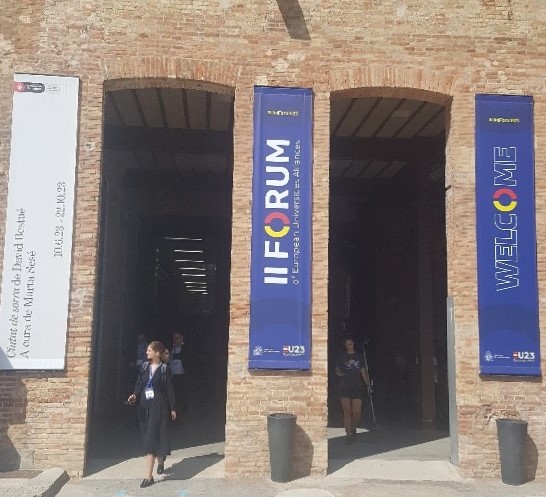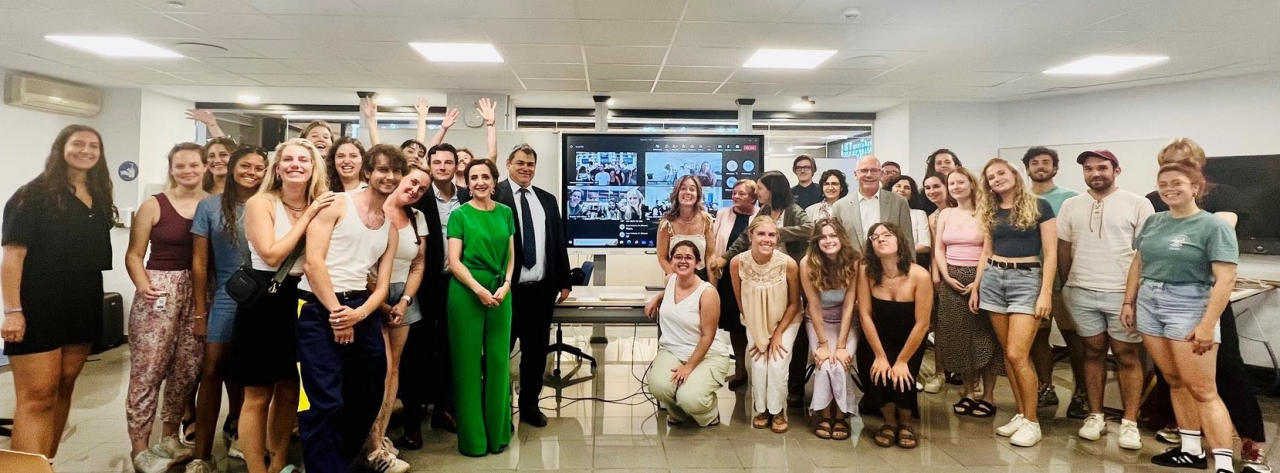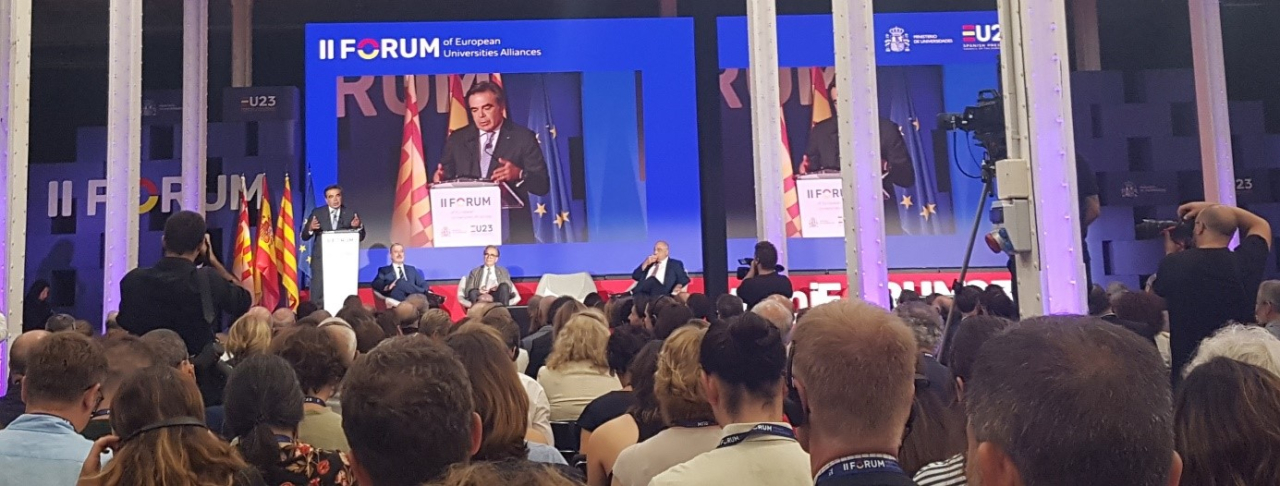International
Hcéres participation to the Forum of European universities alliances
Published on
Hcéres took part in the CHARM-EU Alliance partners' meeting on 13 September, at the historic premises of the University of Barcelona.

On this occasion, the Alliance partners visited a hybrid classroom belonging to the CHARM-EU Alliance and comprising the University of Barcelona (coordinator), Trinity College Dublin, the University of Utrecht, the University of Montpellier and the Eötvös Loránd Budapest University.

The meeting was also an opportunity for the coordinator of the European University, Meritxell Chaves (University of Barcelona), to present:
- CHARM-EU's achievements and future objectives;
- The results of the Masters in Global Challenges for Sustainability and the new version of the joint Masters;
- The concept of a potential future PhD programme;
- The state of the art of microcredit among CHARM-EU partners.
Hcéres also took part in the plenary sessions of the second Forum on European University Alliances of Barcelona, following on from the first European University Alliances Campus organised in June 2022 by the French Presidency of the Council of the European Union.
To date, 50 alliances have been formed under the European Universities Initiative, bringing together more than 430 higher education institutions, including 51 French ones, from 35 different countries and a total of 1,700 associated partners.
The European Commission has also announced that a 4th call for projects is scheduled for the 2nd quarter of 2024. 60 alliances involving at least 500 higher education institutions in the European Higher Education Area should be created by the end of 2024.
The aim of the forum was to provide a forum for dialogue and the exchange of ideas on the most important issues currently facing European alliances.
The two days of conferences and debates brought together a wide range of stakeholders in European university alliances: higher education institutions, national authorities and ministries, evaluation agencies and the European Commission.
Topics discussed included the potential for societal transformation of European universities, the research and innovation activities of European alliances, a potential European legal status for alliances of higher education institutions (main objectives and added value), and the social and inclusion dimension of European universities.
Finally, two topics of particular interest to Hcéres were discussed:
- The 'European diploma' label (main objectives and added value);
- A potential European quality assurance and automatic recognition system.




